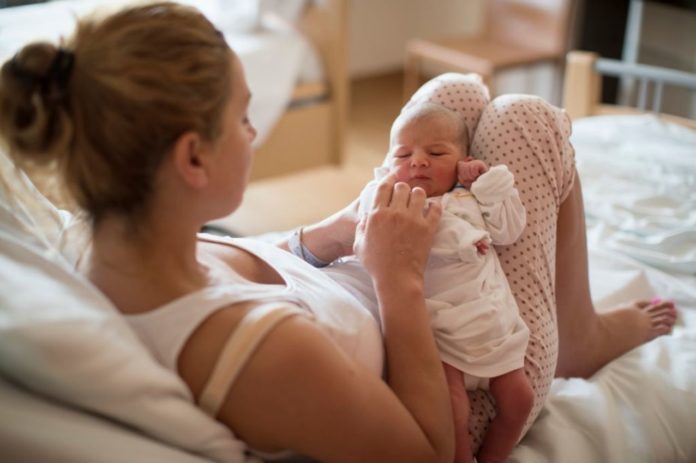Women who have preeclampsia during pregnancy like celebrity mums Beyoncé, Kim Kardashian, and Mariah Carey are three times more likely to have strokes later in life than women who have never had it, reveals new study.
In 2019, Kim Kardashian revealed the health complications she faced during and after her two pregnancies while thinking back on her journey to motherhood.
“When I was pregnant with my daughter North, I had a condition called preeclampsia or toxemia, which is basically when the mom’s organs start to shut down,” Kardashian said. “The only way to get rid of that is to deliver the baby.”
- Does This Mean We Stopped Being Animal and Started Being Human Due to ‘Copy Paste’ Errors?
- The One Lifestyle Choice That Could Reduce Your Heart Disease Risk By More Than 22%
- Aging: This Is What Happens Inside Your Body Right After Exercise
- Immune-Boosting Drink that Mimics Fasting to Reduce Fat – Scientists ‘Were Surprised’ By New Findings
- Gun Violence in America: What They Don’t Talk About at the Debate
Now, a team of researchers from the US University of Utah Health has found that women who have preeclampsia during pregnancy are at least three times more likely to have strokes later in life than women who have never had it.
Pre-eclampsia affects around 42,000 pregnancies a year in the UK (six percent). It reduces the flow of blood through the placenta, and can lead to stillbirth or maternal death.
While in many women the symptoms are mild, in some cases the condition becomes so severe the baby needs to be delivered prematurely.
Study lead author Dr. Adam de Havenon, an Assistant Professor of neurology at University of Utah Health in the United States, said:
“Our study strongly suggests that, for women who have a history of preeclampsia, physicians should consider aggressive treatment of midlife vascular risk factors, including high blood pressure and elevated cholesterol and glucose levels.
“Doing this could potentially reduce the risk of these women having strokes.”
Preeclampsia occurs when a woman who previously had normal blood pressure suddenly develops high blood pressure and protein in her urine or other problems after 20 weeks of pregnancy.
Left untreated, preeclampsia can lead to serious complications for both mother and child.
Previous research found an association between preeclampsia and stroke but did not follow women through midlife or track the development of risk factors for strokes such as high blood pressure, cholesterol, blood glucose, or smoking.
For the new study, published in JAMA Network Open, Dr. de Havenon and colleagues analyzed data from 1,435 women who had given birth and participated in a project that followed a group of individuals over time to determine the natural history of cardiovascular diseases, including stroke.
The health of participants was evaluated every two years, from 1948 to 2016.
None of the women had suffered a stroke prior to enrollment in the study. However, 169 of them had preeclampsia prior to participation.
Women who had the condition were more likely to be younger, smoke, have higher diastolic blood pressure, and receive treatment for high cholesterol than other women evaluated.
Over an average follow-up of 32 years, 231 women had a stroke. After accounting for the development of traditional vascular risk factors over time, a history of preeclampsia was found to be independently associated with around a 3.8-fold higher risk for having stroke later in life.
Although the researchers acknowledge that much remains unknown about the association between preeclampsia and stroke, they suspect the condition may cause more long-term damage than previously thought, making a woman more susceptible to stroke as she ages.
- Does This Mean We Stopped Being Animal and Started Being Human Due to ‘Copy Paste’ Errors?
- The One Lifestyle Choice That Could Reduce Your Heart Disease Risk By More Than 22%
- Aging: This Is What Happens Inside Your Body Right After Exercise
- Immune-Boosting Drink that Mimics Fasting to Reduce Fat – Scientists ‘Were Surprised’ By New Findings
- Gun Violence in America: What They Don’t Talk About at the Debate
Study senior author Dr Lauren Theilen, an Assistant Professor of obstetrics and gynaecology at University of Utah Health, said:
“Preeclampsia is a complicated disease involving injury to the lining of the blood vessels.”
She added:
“We used to think it just happened while you were pregnant, then it healed afterward. But preeclampsia may be doing lasting damage to the blood vessels.”
Now Dr Theilen is exploring various physiological mechanisms that could help explain how and why preeclampsia, in conjunction with other vascular risk factors, increases stroke risk among women.
They recommend that women who have had preeclampsia should be carefully monitored in the years after it occurs.
- Does This Mean We Stopped Being Animal and Started Being Human Due to ‘Copy Paste’ Errors?
- The One Lifestyle Choice That Could Reduce Your Heart Disease Risk By More Than 22%
- Aging: This Is What Happens Inside Your Body Right After Exercise
- Immune-Boosting Drink that Mimics Fasting to Reduce Fat – Scientists ‘Were Surprised’ By New Findings
- Gun Violence in America: What They Don’t Talk About at the Debate
According to sources, 1 in 14 pregnant women experiences pre-eclampsia – including celebrity mums Kim Kardashian, Beyoncé, Mariah Carey, and Sophie Ellis Bextor.
